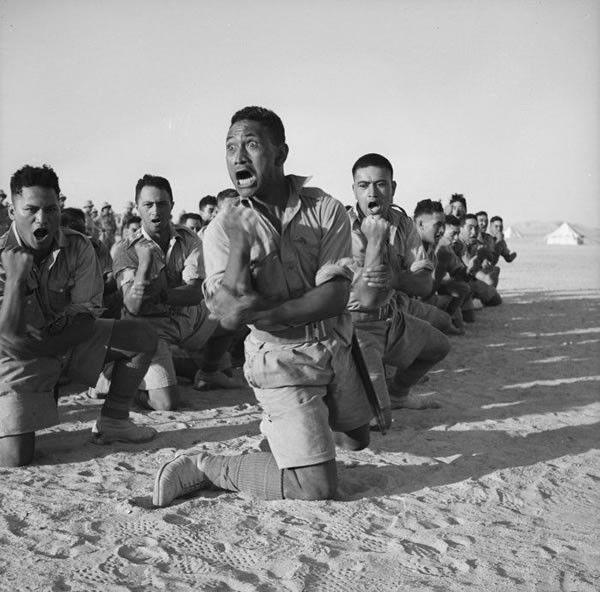28 (Māori) Battalion Reunion

I begin by greeting everyone in the languages of the realm of New Zealand, in English, Māori, Cook Island Māori, Niuean, Tokelauan and New Zealand Sign Language. Greetings, Kia Ora, Kia Orana, Fakalofa Lahi Atu, Taloha Ni and as it is the afternoon (Sign).
I specifically greet you: Bill Pitman, President of the 28 (Māori) Battalion Association and members of your Executive; Hon Dr Pita Sharples, Minister of Māori Affairs; Leith Comer, Chief Executive of Te Puni Kōkiri; Hon Phil Goff, Leader of the Opposition; Hon Parekura Horomia, MP for Ikaroa-Rāwhiti; Veterans, widows and family members; Distinguished Guests otherwise; Ladies and Gentlemen.
Thank you for inviting my wife Susan and I to the National Reunion of the 28 (Māori) Battalion.
Sixty-five years have passed since the end of the Second World War that devastated our world. Historians estimate the war claimed the lives of 50 million people, including one in every 150 New Zealanders. Many more were injured and maimed, and many grieving families were left behind.
It was a war in which all New Zealanders gave their greatest national effort, at home and abroad, and on land and sea and in the air.
It was a war that New Zealanders fought on a global front that stretched from Japan and the Pacific to the Mediterrean and North Africa and it was a war in which New Zealanders fought with honour to defend their nation and democratic values from an evil totalitarian ideology. To those who served, and to those who died, we owe a great debt for the freedoms we continue to enjoy to this day.
Here at Orakei this afternoon we remember the contribution of members of the 28 (Māori) Battalion, which saw service in Britain, Greece, Crete, North Africa and finally in Italy.
The names where the Battalion fought with honour, bravery and courage, places such as El Alamein, Takrouna and Cassino, have become an integral part of New Zealand's history.
The exploits of the almost 3600 men who served with the Battalion between 1940 and 1945 resulted in numerous honours.
And those who survived continued to contribute to the community on their return home. For example, to one of the veterans here today, Major Hone Hikitia Te Rangi Waititi, I had the pleasure of presenting the Insignia of a Companion of the Queen's Service Order, for services to the community, at an investiture ceremony at Government House in March last year.
But with so much honour, sadly also came much loss of life. Some 649 were killed in action or died on active service and a further 1712 men were wounded and 237 were prisoners of war.
Today the ranks of the Battalion, like all those who served in the Second World War, are growing thinner. I understand of the almost 3600 who served, only about 50 now remain.
However, the role the Battalion played in defending our nation will never be forgotten. We also remember their loved ones who, so far from home, suffered greatly. As Governor-General and as Commander-in-Chief, I thank you for your service.
The young men of the Battalion who survived the war suffered in ways that we cannot hope to understand. They saw first-hand the horrors of war. Physical wounds can often heal, but the wounds inflicted in watching comrades die will never pass. They are painful memories that few veterans have been willing or able to share.
To close, I would like to recite a poem by esteemed New Zealand poet, the late Alistair Te Ariki Campbell. His poem, Maori Battalion Veteran, captures not only the damage war inflicts on those who serve, but also their spirit of comradeship and it reads as follows:
I have fought throughout the war
from Greece to Crete, from Crete
to North Africa, and from there
to Italy. I am battle scarred.
I have been wounded in a dozen
places. My mind doesn't work
properly anymore. I have nightmares
Night and day I see pictures
of my closest mates falling
beside me in so many battles
I have forgotten when and where
it was they died. I have shed
so many tears, I have no tears
left to shed. Where my mind
used to be there is nothing
but darkness, the sound of roaring,
and emptiness. I have become
an empty street in a town
that has been blown to pieces.
No one lives there any more,
no one who loves sunlight-
and yet at the special church
service at Maadi at the end of
the war when the battalion
sang the sacred hymn ‘Aue Ihu'
my dead mates came alive, and for
the first time in years I wept,
and so did the strong men singing
beside me. That night at base camp
I dreamt of rain in the desert.*
And on that poignant note, I will close in New Zealand's first language, Māori, offering everyone greetings and wishing everyone good health and fortitude in your endeavours. No reira, tēnā koutou, tēnā koutou, kia ora, kia kaha, tēnā koutou katoa.
For more information about the 28 (Māori) Battalion, click here
*(c) Alistair Te Ariki Campbell, Maori Battalion: A Poetic Sequence. Wellington: Wai-te-ata Press, 2001.
